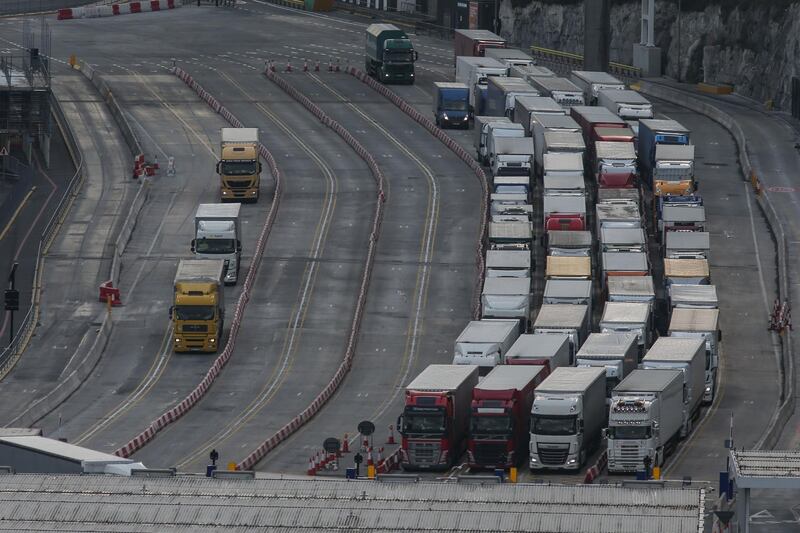UK ports are increasingly at risk of facing major disruptions if there’s a no-deal Brexit as a “complacent” transport department makes slow progress with preparations, British MPs warned on Wednesday.
The workload will remain challenging even if the UK manages to agree on a divorce deal with the European Union before its scheduled exit on March 29, according to the House of Commons Public Accounts Committee (PAC), a parliamentary panel that scrutinises government spending.
The government has yet to test its so-called Project Brock, which envisages turning part of a highway near the port of Dover into a holding area for trucks, the MPs said.
_______________
Read more:
No-deal Dover rejects Theresa May’s Brexit dreams of EU compromise
_______________
Prime minister Theresa May is trying to gather support for a proposed divorce deal with the EU, under which the UK will remain in a customs union with the EU for a 21-month transition period while Britain negotiates new trade arrangements.
She faces a decisive Parliament vote on December 11, which many expect her to lose, potentially leading to the UK dropping out of EU without any transition or trade deals.
“There is a significant and growing risk” that the transport department will not be ready in such a scenario, the PAC said. “The department’s preparations for avoiding disruption around major ports are worryingly under-developed.”
Those warnings add to a growing list. Mrs May’s proposed deal “falls short” of guaranteeing frictionless trade and doesn’t rule out increased border checks for UK-EU trade flows, the British Ports Association said last week.
If there’s no deal, the Bank of England can’t do much to counter economic damage from supply problems, policy maker Michael Saunders told a parliamentary committee November 20.
Businesses have been kept in the dark as the government discussions were conducted in secrecy, handicapping their ability to prepare for a no-deal outcome, the lawmakers said.
Contingency plans like road hauliers potentially changing their routes or point of entry to Europe, and the process of registering trailers for road haulage permits, are subject to the government’s non-disclosure agreements, they said.
“We see these agreements as undermining transparency and hampering the spread of information to the business community at large,” the PAC said. “It should urgently step up its communications with businesses and other stakeholders on what they need to do to prepare.”






